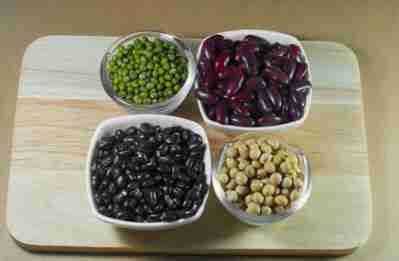Kidney Foundation
What you eat has a direct effect on your kidneys, so your diet is a very important part of your treatment plan for chronic kidney disease. Your dietary needs are unique to you, and they depend on a lot of factors, including your kidney function, your other medical conditions (e.g., diabetes, high blood pressure, etc.), your medications, your weight, and your overall health.

Your dietitian will work with you to create a daily eating plan that will take all of these factors into consideration and keep you feeling as well as possible. Remember that as your kidney function changes over time, your diet will need to change as well. Blood tests will help your health care team to decide when those changes are needed. The right kidney-friendly diet can:
Meet your nutritional needs
Reduce your kidneys’ workload
Help maintain the kidney function you have left
Control the build-up of food wastes like urea
Reduce symptoms like fatigue, nausea, itching, and bad taste in the mouth
These are the nutrients you’ll need to keep an eye on to help relieve your symptoms, control your blood pressure and maintain your health:
What are the problems related to drinking too much protein shake?
Unfortunately, many people are mistaken when they expect a miracle from protein shakes. They think their muscles will automatically grow and they won’t need to do anything else. Some others are lazy to eat solid food so they keep drinking shakes and realise at the end of the day that it was their 5th. What problems could arise from drinking too much protein shake?

Protein shake is not a substitute for regular food
Just like the name suggests, protein shakes are dietary supplements. They are not meant to replace regular and normal meals, but to supplement them if your diet doesn’t include the protein quantity that your body requires. You might work out on a daily basis and you need a high protein intake for muscle regeneration, or you are on a diet, but you would like to retain your muscles. Or maybe your day is so full that you don’t have time for a proper meal, so you drink a shake now and eat a normal meal later. These are all acceptable answers, but it is not OK if you get your necessary protein intake only from protein shakes.
What is “much” in this situation?
You should cover no more than a third of your protein intake with shakes! If you need 120g of protein, then you may drink two shakes each with 20g protein content per day. Every now and then it may be a little bit more if there is no other solution, but definitely not on a regular basis!
Why is it not good to consume protein shakes excessively?
Protein shakes are liquid nutrients. Your body is “specialised” to process solid food. If you continuously burden your body with liquid meals, your stool will change in consistency. You will either suffer from constant diarrhoea or have a loose stool. In addition, you can expect to be regularly bloated and have an enhanced gas production. The excessive consumption of protein causes acidification, and as a result you might experience a number of the following symptoms: constant fatigue, tiredness, irritability, constant smaller illnesses, weakness, incapacity to lose weight, spots on your skin, unpleasant mouth odour, broken nails and hair, etc. In order to avoid this you should consume a large quantity of vegetables together with your high protein intake. Extra burden for the kidneys: it is a huge burden for your body, especially for the kidneys to deal with an excessive amount of proteins. If you are suffering from a kidney disease you shouldn’t consume protein excessively, but even in a healthy body the continuous protein overload could result in significant problems. Calcium loss: the excessive protein intake causes a withdrawal of calcium in the bones that can lead to a weakening of your bones. Therefore, when you follow a diet rich in protein, you must pay attention to an increased intake of calcium! Weight gain: protein is a nutrient that contains calories. If you consume too much of it, it will result in a weight gain. If you increase your protein intake, but would not like to gain any weight, you must decrease your intake of carbohydrates and/or fats. If you want to lose weight, it is not enough just to increase your protein intake. If you are a beginner, however, even this single step can result in a huge transformation in your shape. Nevertheless, it is very important to follow a proper diet if you want to lose weight! Unnecessary: if you consume more than 2.5g/kg (in body weight) protein, your body simply can’t process it. It is only an extra burden on your body to process or store in surplus.
Protein shakes are an excellent solution and provide a high quality protein intake, if you follow the prescribed dose. Just like with anything else, don’t get carried into the extremes!
BioTechUSA
The Impacts of Plant Protein on Chronic Kidney Disease
Jan 05, 2016 1:00 AM

Author: Libby Mitchell
Chronic kidney disease (CKD) patients should consider adding more plant-based proteins such as beans and tofu to their diet. While eating animal protein was previously associated with a negative health effect on these patients, a new study shows that eating plant proteins can actually improve their health – and lower their mortality rate.
“In this study, we found every 33% increase in the plant to total protein ratio was associated with a statistically significant decreased risk of death in those with CKD,” said Srinivasan Beddhu, MD, a nephrologist with University of Utah Health Care. “Our research indicates that plant-based proteins could play an important role in improving the health outcomes for people with decreased kidney function.”
While the impacts of adding plant protein are being seen it still is not clear why these impacts are occurring. One hypothesis is that the consumption of plant proteins lowers the production of uremic toxins. “These toxins have been implicated in the progression of CKD,” says Beddhu. “They can also contribute to cardiovascular disease, and death in patients with kidney disease.”
Another explanation deals with the levels of phosphorus in the body. Normal functioning kidneys remove phosphorous in the blood. However, in patients with CKD the phosphorous cannot remove the mineral and that can lead to leaching of calcium from the bones, and deposits of calcium on organs.
“In animal protein sources the absorption rate of phosphorus is higher,” says co-author Xiaorui Chen, MS, a graduate research assistant at the University of Utah School of Medicine. “However, in plant proteins there is a low bioavailability of phosphorus, so a diet high in plant protein for patients with CKD may also lower body phosphorus burden.”
More research still needs to be done on improving the lives of patients with CKD. “Dietary interventions, such as increasing plant protein intake, may have an effect on slowing down the progression of kidney disease,” says Beddhu. “But this needs to be tested in randomized controlled trials.”

